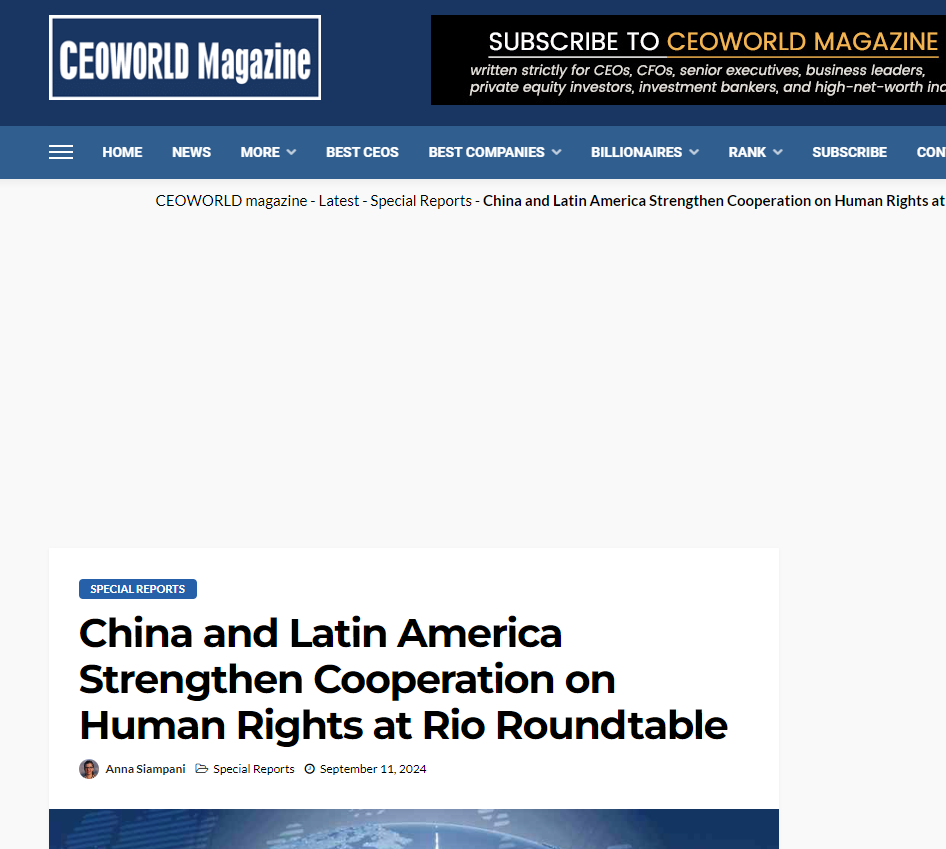LATEST INSIGHTS
Your Present Location: LATEST INSIGHTS[CEOWORLD] China and Latin America Strengthen Cooperation on Human Rights at Rio Roundtable
Source: CEOWORLD magazine Published: 2024-09-11

By Anna Siampani
China and Latin American countries are joining forces to address human rights challenges and foster development, officials and experts emphasized at the first China-Latin America and Caribbean States Roundtable on Human Rights held in Rio de Janeiro on Tuesday. The event, organized by the China Society for Human Rights Studies (CSHRS), Renmin University of China, and Universidade Federal Fluminense, marks the first institutional exchange on human rights between China and Latin America, and the Caribbean (LAC). It drew over 120 senior officials and experts from 17 countries, including China, Brazil, and Argentina.
At the event’s opening, Padma Choling, president of the CSHRS, highlighted the growing alignment of human rights concepts between China and LAC nations. He emphasized that while each country follows its own path in human rights development, they share a common commitment to civilizational exchange and building a China-LAC community with a shared future.
China and LAC countries have collaborated on global development, contributing to significant international documents like the UN Declaration on the Right to Development. Padma Choling underscored the need to promote peaceful development and deepen South-South cooperation to ensure equal human rights for all. He called for continued dialogue to build consensus on addressing human rights challenges amid rising global instability, unilateralism, and protectionism.
Chinese Ambassador to Brazil Zhu Qingqiao emphasized the shared responsibilities of China and LAC nations in advancing development, improving living standards, and promoting social equity. Despite differences in historical processes, social systems, and cultural traditions, he pointed to a wide range of opportunities for cooperation in the human rights field.
Former Grenadian Foreign Minister Charles Peter David praised China’s partnership with the Caribbean, citing the Grenada National Stadium and Grenada General Hospital as symbols of collaboration that uplift communities and honor human dignity. He affirmed that this partnership is a powerful example of how global cooperation can enhance human rights and improve lives across the region.
The roundtable demonstrated a collective commitment to sustainable development under the framework of South-South cooperation, with both Latin America and China exploring new avenues for advancing global human rights governance.























































































 京公网安备 11010802037854号
京公网安备 11010802037854号





